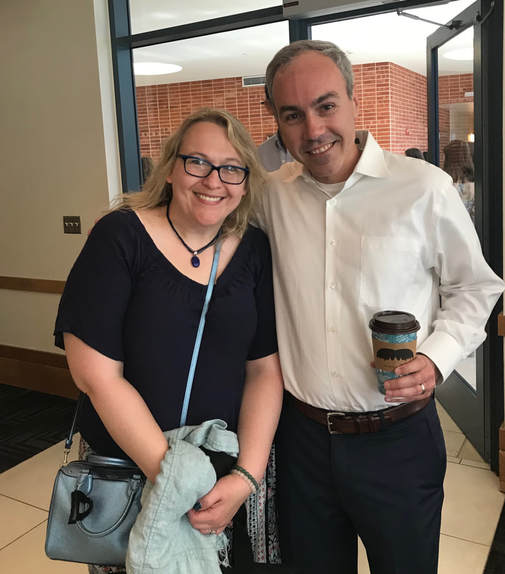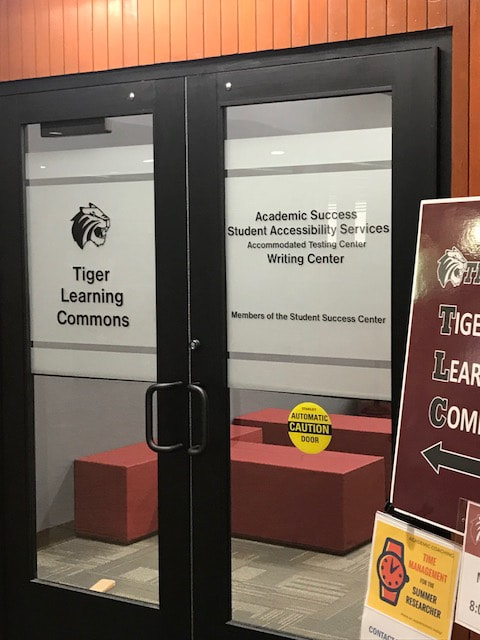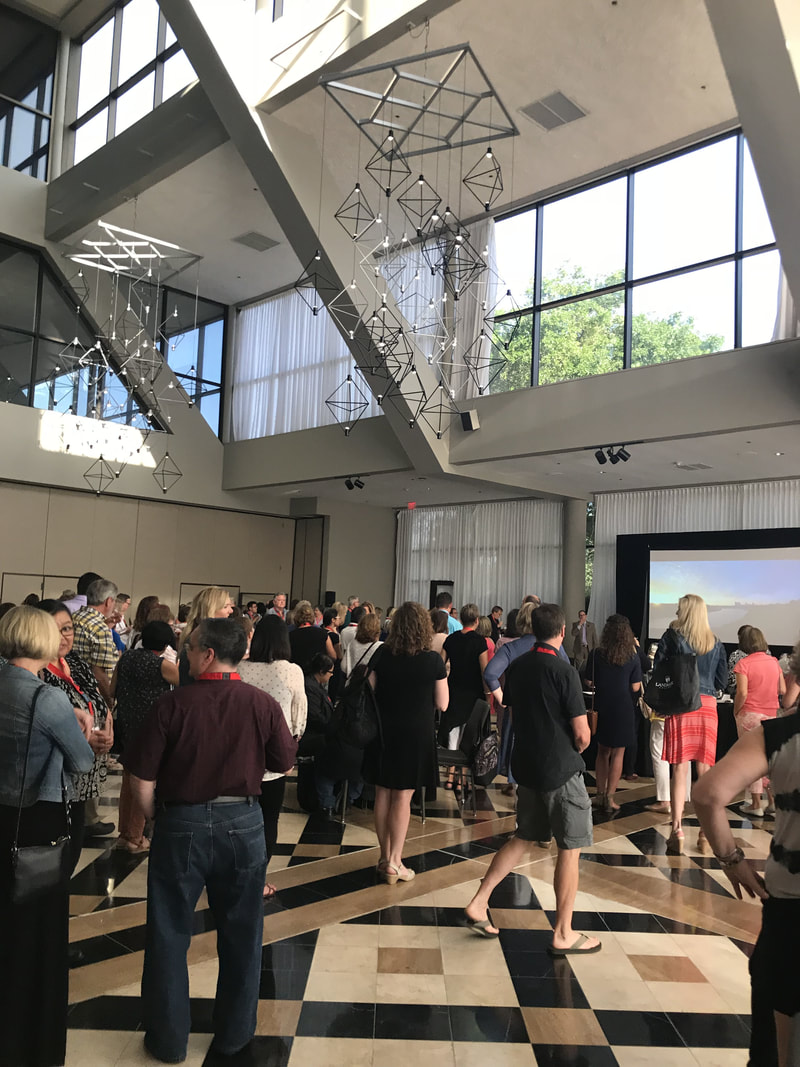|
After this year's HECA conference in Dallas, I had the good fortune of driving down to San Antonio to visit Trinity University. Part of my campus visit included having coffee with the Dean of Admissions, Justin Doty. A member of Trinity's Admissions Office since 2000, Dean Doty has seen it all when it comes to the college admission process, and he generously took time from his busy schedule to discuss the importance of student well-being at Trinity and beyond. At the top of my list of questions for him was how Trinity supports its students, whether that means assisting a student with learning differences or making sure that a student who may be struggling receives the necessary attention to succeed. I was thrilled to learn that Trinity is part of a small but growing number of higher educational institutions that have changed the name of their "Office of Disability Services" to an "Student Accessibility Services" (Clark University in Worcester, Massachusetts is another such school that immediately comes to mind). Dean Doty and I agreed that words are important, and they are particularly crucial when it comes to de-stigmatizing having a learning difference. To that end, Trinity has created a learning hub where ALL students are encouraged to go to find help for any academic issue that they may have, whether it's receiving tutoring on a difficult subject, assistance working out accommodations for a learning difference, or having someone proofread a research paper. Housed in their library, the Tiger Learning Commons gives all students a safe space to receive whatever academic boost they may need.
Yet, what REALLY impressed me during our conversation was Dean Doty's description of the weekly administrator meetings, called the "Student Success Team." Members from Student Life, Residential Life, Accessibility Services
0 Comments
This year's annual conference for the Higher Education Consultants Association, held in Dallas, Texas, offered a wealth of information for independent college consultants, and over 200 of us from all over the U.S. gathered at the Renaissance Hotel in Addison for two days PACKED with learning! The breadth and depth of topics covered in the panels and workshops was impressive, but three common themes that resonated with me dominated the conference:
1) The Importance of Working with Credentialed Professionals: As the number of people who offer their services to help students with their college applications continues to explode, it's becoming that much more crucial that families who choose to work with an Independent College Consultant (ICC) make sure to hire a professional who belongs to at least one of the two major organizations that govern ICCs in the U.S. - HECA or IECA (Independent Educational Consultants Association). Since the college consulting field is still largely unregulated, families who hire members of HECA and/or IECA are guaranteed at least a certain level of college consulting knowledge, ethical conduct, and overall professionalism. For example, in order to become a member of either organization, an ICC *must* go through a challenging application process designed to vet the consultant in order to ensure that this person's work and character are above and beyond the established standards set by these organizations. For example, when I was a college professor, all I had to do to belong to a professional organization in academia was complete a form, and submit my fee payment. Not so for HECA! In order to become a full member of HECA, I needed to submit a written recommendation from a professional colleague who would testify to my ethical standards and to the quality of my character. I also had to demonstrate that I had visited at least 20 college campuses in the last 2 years, had completed one of the approved college counseling training programs (such the one offered at the UCLA Extension School) or had worked a certain period of time as a high school counselor or as a college admission officer, and had to complete an elaborate written application. I had to complete a similar process to become a member of the New England Association for College Admission Counseling (NEACAC). As a point of comparison, anyone who is employed by a high school guidance office or a college admission office that belongs to NEACAC may pay the membership fee and be accepted - independent college consultants, however, are vigorously screened in order to ensure professionalism and ethical behavior. Being surrounded by both young and seasoned ICCs served as a great reminder that the effort I put into becoming credential is key in making sure that HECA members are able to provide the best possible support to families. 2) The Well-Being of Our Students Comes First: Somehow, no matter the panel or specific topic, the subject of student well-being kept arising, demonstrating our concern in the profession over young adults being subjected to too much pressure and stress in the college admission process. Everyone seemed to be on the same page about encouraging families to think of the college admission process as a journey to find the right "fit" - matching the student's unique needs and wants with colleges and universities that would maximize the chances of happiness for that student. And, part of finding the right "fit" involves supporting a student's mental and physical health just as much as identifying schools that stimulate intellectual engagement. Too many students continue to feel pressure (whether from themselves, from peers, from family, or from the community cultures at large) to narrowly define success as gaining admission to one (or more) of the approximately 100 elite colleges and universities in the U.S. that are hyper-selective. As ICCs in general and HECA members in particular, it's up to us to advocate for our students, and to educate them and their families about the importance of stress management, and about the setting of realistic expectations. By employing a student-centered approach to everything from discussing possible majors and careers to putting together that college list to choosing the right admission offer to accept, we ensure that our students have the best chances of finding their place where they will thrive in the coming years. 3) We Are Educators First, Business-Owners Second: I asked many of my colleagues in attendance why they chose to belong to HECA, and all expressed the same sentiment - we are ICCs because our passion is to educate. We care about sharing our knowledge with each other and with families in order to help our students achieve their dreams. While we all may be business owners, our priority will always be assisting families with the increasingly complex and often overwhelming college admission process. Even the business-oriented panels tended to include discussions about best practices for supporting our students and families. This year's HECA left me inspired and energized, armed with a new community of brilliant colleagues who share my values and educational philosophy. I'm already looking forward to next year's HECA conference, which will be held in Providence, Rhode Island! |
AuthorMaruta Z. Vitols is an independent educational consultant in the metro-Boston area. When not helping students achieve their dreams, she enjoys hanging out with her dog, exploring new places with her husband, and doing yoga. Archives
April 2023
Categories |




 RSS Feed
RSS Feed